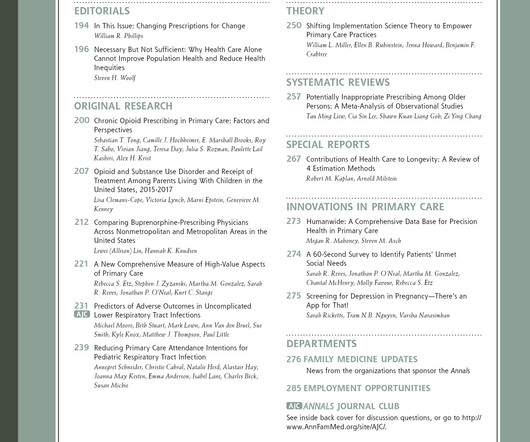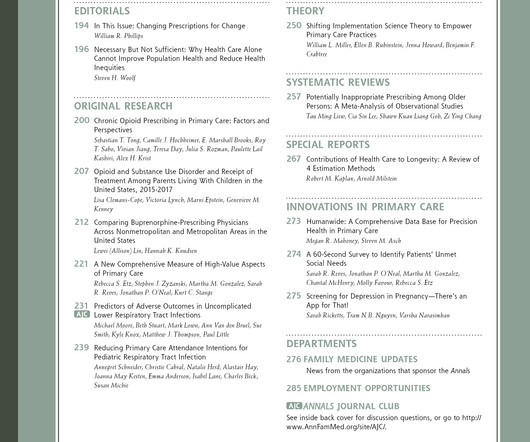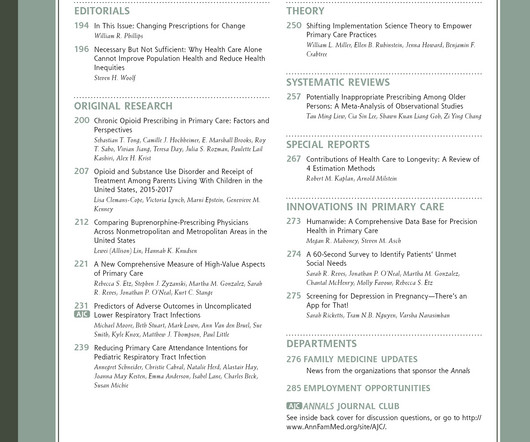Exploring Trends in Postpartum Hemorrhage with SHRINE Network Aggregated Electronic Health Records (EHR) Data. [Health care disparities]
Annals of Family Medicine
NOVEMBER 20, 2024
Assess temporal PPH trends and comorbidity burden among women who had given live births from 2005 to 2022. Women 15-54 years with live births between 2005-2022. Study Design and Analysis. Population Studied. Intervention/Instrument. American Indian and Native Hawaiian showed the highest prevalence of PPH (11.52%, 11.71%). Conclusions.













Let's personalize your content